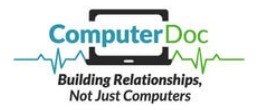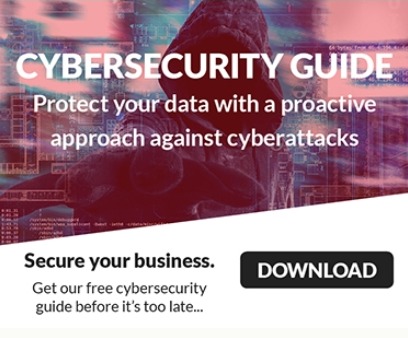As businesses embrace digital transformation, selecting the right cloud provider is pivotal. A secure cloud company ensures your data remains protected, accessible, and compliant with industry standards. From small enterprises to large corporations, safeguarding your cloud assets is essential for maintaining operational continuity and building customer trust. This blog will discuss the elements to consider when choosing a secure cloud company, common challenges, and the importance of aligning your selection with your business’s unique needs.
Why Your Choice of Cloud Provider Matters
The vast adoption of cloud services has revolutionized how businesses store, share, and manage their data. At the same time, cloud solutions offer unmatched scalability and flexibility but have inherent risks. Cyberattacks, data breaches, and compliance violations are just some potential threats. Choosing the right cloud provider can mitigate these risks and ensure your organization’s sensitive data remains secure.
The Risks of an Insecure Cloud Provider
An insecure or ill-suited cloud provider can have serious repercussions for your business:
- Data Breaches: Inadequate security measures can expose your data to unauthorized access.
- Downtime and Service Interruptions: Unreliable infrastructure can disrupt operations and lead to lost revenue.
- Compliance Failures: Misalignment with industry regulations can result in legal penalties and reputational harm.
Given these risks, partnering with a provider that prioritizes security and reliability is crucial.
Key Elements to Consider When Selecting a Secure Cloud Company
When evaluating cloud providers, focus on these critical areas to ensure your business’s data and operations are well-protected:
- Security Measures and Certifications
A secure cloud company should demonstrate a robust commitment to protecting your data. Look for:- Encryption: Confirms that data is encrypted both in transit and at rest.
- Access Controls: Providers should offer multi-factor authentication (MFA) and role-based access control (RBAC) to limit unauthorized access.
- Certifications: Check for compliance with industry standards such as ISO 27001, SOC 2, or FedRAMP. These certifications indicate a provider’s adherence to stringent security protocols.
- Compliance and Regulatory Support
Different industries have unique compliance requirements. For example:- Healthcare: Cloud providers should comply with HIPAA to protect patient data.
- Finance: Providers must align with PCI DSS to process payments securely.
- Global Standards: If operating internationally, ensure the provider supports GDPR or other relevant regulations.
A secure cloud company will offer tools and guidance to help your organization meet these obligations.
- Data Backup and Recovery Plans
Unexpected things like cyberattacks or natural disasters can jeopardize your data. A dependable cloud provider should offer:- Regular Backups: Automated and frequent backups to prevent data loss.
- Disaster Recovery (DR): A robust DR plan ensures your operations can resume quickly after disruptions.
- Geographic Redundancy: Storing data in multiple locations for added resilience.
- Infrastructure Reliability
Reliability is a cornerstone of cloud security. Key aspects to evaluate include:- Uptime Guarantees: Check the provider’s Service Level Agreement (SLA) for uptime commitments.
- Performance Metrics: Review their latency, scalability, and response times track record.
- Monitoring and Support: Providers should offer 24/7 monitoring and responsive support teams.
- Customizability and Scalability
As your business grows, your cloud needs may evolve. A secure cloud company should provide:- Customizable Solutions: Tailored options to fit your specific security and performance needs.
- Scalability: The ability to adjust resources as your requirements change.
- Integration Support: Seamless compatibility with your existing systems and software.
Common Challenges When Transitioning to the Cloud
Moving to the cloud is a considerable undertaking with its share of challenges. Being aware of these can help you mitigate risks and make informed decisions:
- Vendor Lock-In
Some providers use proprietary technologies that make it difficult to migrate to another service. Avoid this by choosing a provider that supports open standards and interoperability.
- Hidden Costs
While cloud solutions are often cost-effective, unexpected fees for storage, bandwidth, or additional security features can add up. Carefully review pricing structures to avoid surprises.
- Data Sovereignty Issues
Regulations in certain jurisdictions may require data to be stored within specific geographic boundaries. Ensure your provider can meet these requirements.
- Lack of In-House Expertise
If your organization lacks the expertise to manage cloud environments effectively, consider partnering with a managed cloud service provider to handle ongoing maintenance and security.
How to Evaluate Cloud Providers Effectively
Beyond understanding the key factors, a detailed evaluation process is crucial to making the right choice. Here’s a step-by-step guide to assessing potential cloud providers:
- Define Your Requirements
Start by identifying your business’s unique needs. Determine the type of data you’ll store, the level of security needed, and any specific compliance standards your industry mandates.
- Conduct Vendor Comparisons
Create a shortlist of providers and compare them based on:- Security Features: Evaluate the robustness of their encryption, access controls, and monitoring capabilities.
- Performance: Review uptime history, latency metrics, and scalability options.
- Reputation: Look for customer reviews, case studies, and testimonials.
- Request a Proof of Concept
Before committing to a provider, ask for a trial or proof of concept. This allows you to test their services, tools, and support quality in a real-world scenario.
- Review Contracts Carefully
Examine the provider’s SLA, pricing model, and exit clauses to ensure no hidden surprises. Pay close attention to terms around data ownership and portability.
The Future of Cloud Security
As technology advances, so do the methods cybercriminals use to target businesses. Emerging trends in cloud security include:
- Artificial Intelligence (AI) Integration: AI-driven tools are increasingly important for real-time threat detection and response.
- Zero-Trust Architecture: This model assumes no user or device is inherently trustworthy, requiring strict verification for all access.
- Edge Computing Security: Securing distributed networks and devices becomes critical as edge computing grows.
Staying ahead of these trends requires continuous investment in advanced security measures and staying informed about industry developments.
Final Thoughts on Choosing a Secure Cloud Company
Selecting a secure cloud company is a critical decision that impacts your business’s security, compliance, and operational efficiency. You can safeguard your data while leveraging the cloud’s many advantages by prioritizing factors such as robust security measures, compliance support, and reliable infrastructure.
At Computer Doc, we specialize in helping businesses identify and partner with secure cloud providers that align with their unique needs. Whether you’re transitioning to the cloud for the first time or seeking to optimize your current setup, we’re here to guide you every step of the way. Contact us today to discuss how we can support your journey to a secure and scalable cloud environment.




